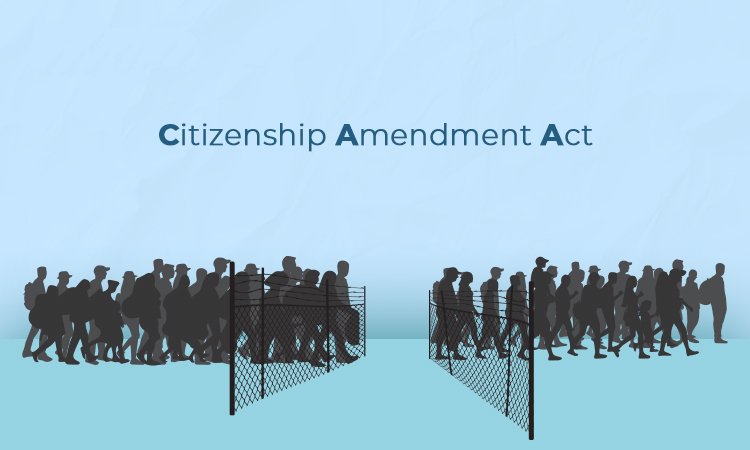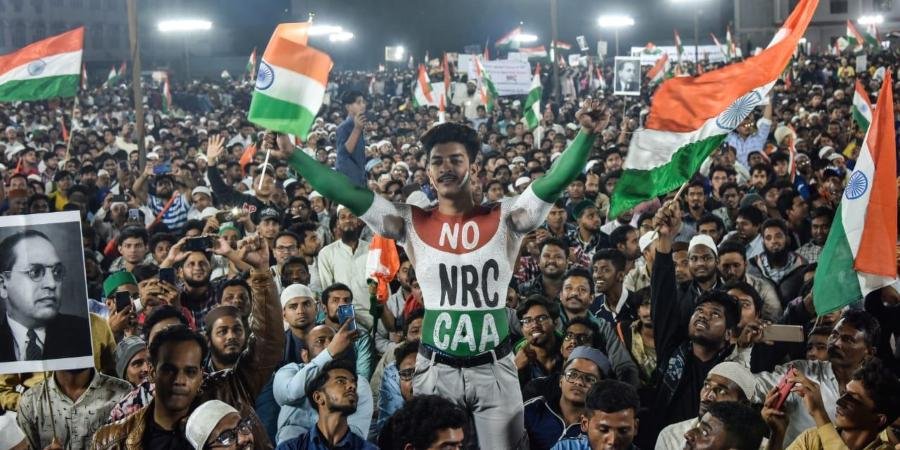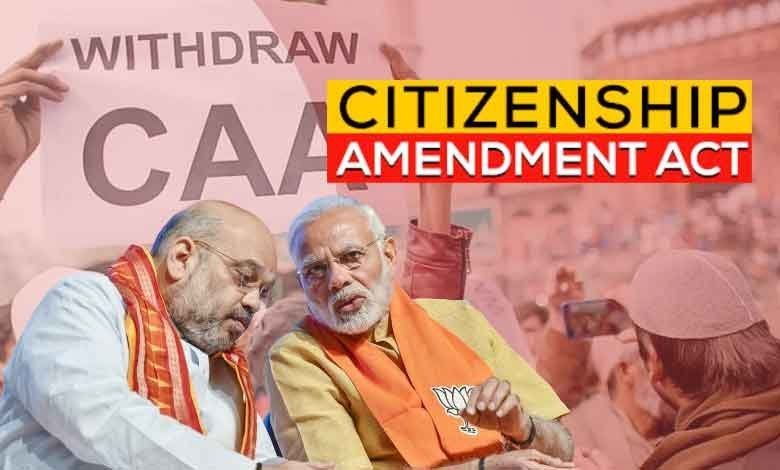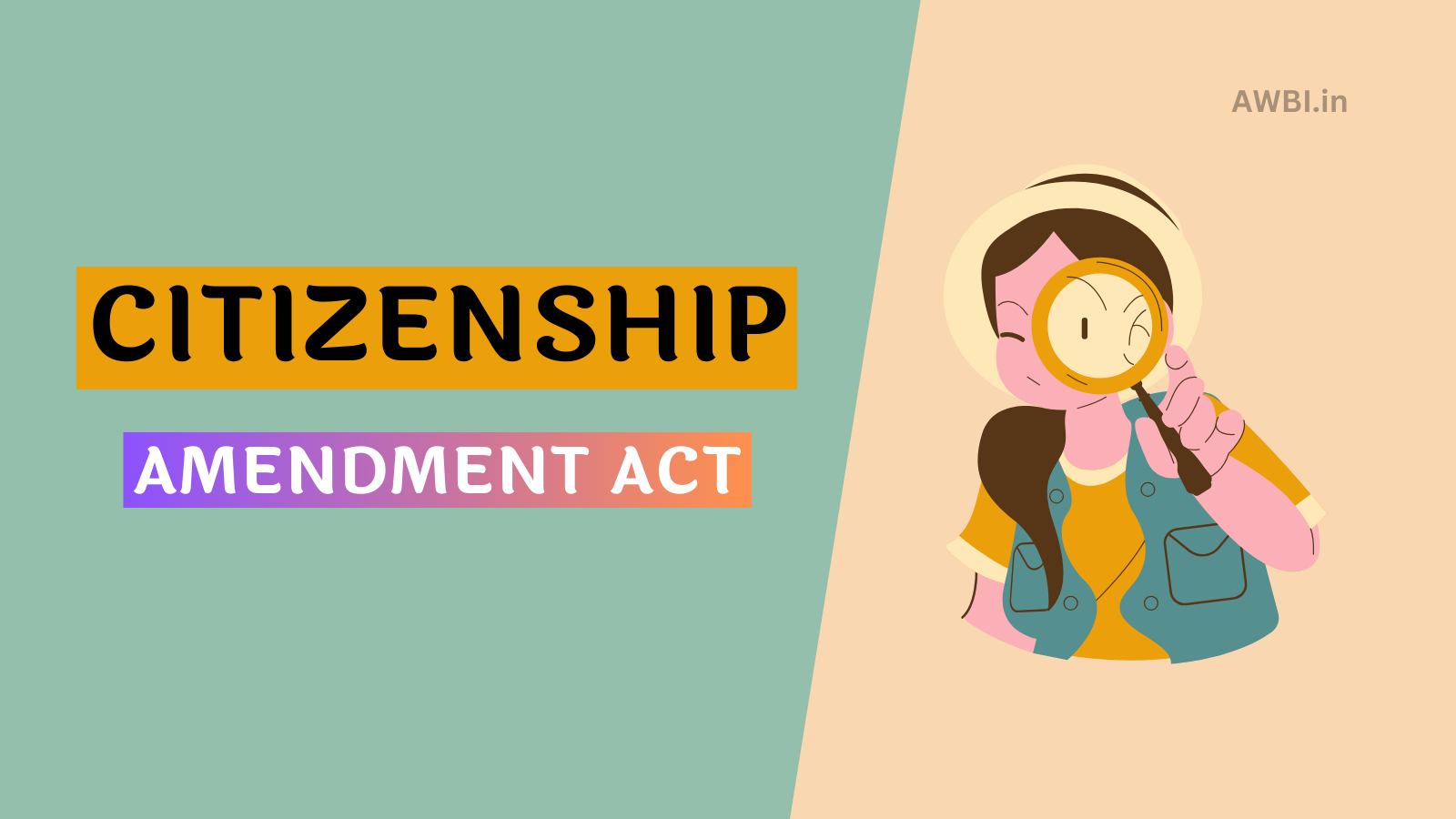The Indian Government has notified the rules for implementing the Citizenship Amendment Act (CAA), paving the way for granting citizenship to undocumented non-Muslim migrants from Pakistan, Bangladesh, and Afghanistan. This contentious law has sparked debates and protests across the nation, with critics arguing that it discriminates against Muslims.

What is the Citizenship Amendment Act (CAA) in India?
The Citizenship Amendment Act (CAA) aims to protect individuals who have sought refuge in India due to religious persecution. It offers them a shield against illegal migration proceedings.
To be eligible for citizenship, applicants must have entered in India on or before December 31, 2014. Currently, Indian Citizenship is granted to those who were born in India or who have lived in the country for at least 11 years.
The CAA also includes a provision for the cancellation of Overseas Citizenship of India (OCI) registration if the OCI cardholder violates any provision of the Citizenship Act or any other applicable Law.
Also Read: Taylor Swift Net Worth: Billion-Dollar Empire
Who Does the CAA Leave Out?

The CAA has been criticized for excluding Muslims, who make up around 15% of India’s population. The government explains that since Pakistan, Afghanistan, and Bangladesh are Islamic republics with a Muslim majority, Muslims cannot be considered persecuted minorities. However, the government assured that applications from other communities will be reviewed on a case-by-case basis.
How can Migrants Apply for Citizenship?
The entire process will be conducted online, and the Ministry of Home Affairs has prepared a portal for the applicants’ convenience. Applicants must disclose the year they entered India without proper documentation. Interestingly, the applicants won’t be asked for any documents.
Why Has the Opposition Been Up in Arms Against It?
The opposition parties have criticised the CAA, calling it “discriminatory.” The Congress party has raised concerns about the timing of the rule notification, alleging that it is intended to polarize the upcoming Lok Sabha elections in West Bengal and Assam. Congress general secretary Jairam Ramesh has accused the government of trying to divert attention after the Supreme Court‘s recent comments on the electoral bond issue.

In Kerala, Chief Minister Vijayan has declared that the CAA will not be implemented in the state, describing it as a law that promotes communal division. The anti-CAA protest followed by police action claimed more than 100 lives.
Also Read: 90+ Hilarious “Never Have I Ever” Questions to Spice Up Game Night
The Timing of Notifying Rules
As mentioned earlier, the CAA was passed nearly four years ago. As per guidelines stated in the manual of parliamentary procedures, the rules for legislation should have been framed within six months of presidential assent or seek an extension from the Committees on Subordinate Legislation in both Houses of Parliament.

Since 2020, the Home Ministry has been taking extensions at regular intervals from the parliamentary committees for framing the rules. However, it was only in December 2023 that Union Home Minister Amit Shah stressed that no one can stop the implementation of the CAA as it is the law of the land and also said it was the BJP’s commitment to implement the CAA.
The timing of the notification is also viewed as the Lok Sabha polls likely to be announced in a couple of days, and the Model Code of Conduct may be implemented thereafter.
Also Read: The Signal Review: A Gripping Sci-Fi Odyssey Through Space and Human Emotions
How Many People May Seek Citizenship Under the New Rules?
While no estimated figure has been provided, according to the annual report of the Ministry of Home Affairs for 2021-22, from April 1, 2021, to December 31, 2021, a total of 1414 foreigners belonging to these non-Muslim minority communities from Pakistan, Bangladesh, and Afghanistan were given Indian Citizenship by registration or naturalization under Citizenship Act, 1955.
The Citizenship Act of 1955 grants non-Muslim minorities from Pakistan, Bangladesh, and Afghanistan Indian citizenship through registration in 9 states: Gujarat, Rajasthan, Madhya Pradesh, Chhattisgarh, Haryana, Punjab, Uttar Pradesh, Delhi, and Maharashtra.
The Citizenship Amendment Act (CAA) has been a controversial and divisive issue, with supporters arguing for the protection of persecuted minorities and critics alleging discrimination against Muslims. As the rules are now notified, it remains to be seen how the implementation will unfold and what impact it will have on the upcoming election and the nation’s social fabric.











Comments are closed.